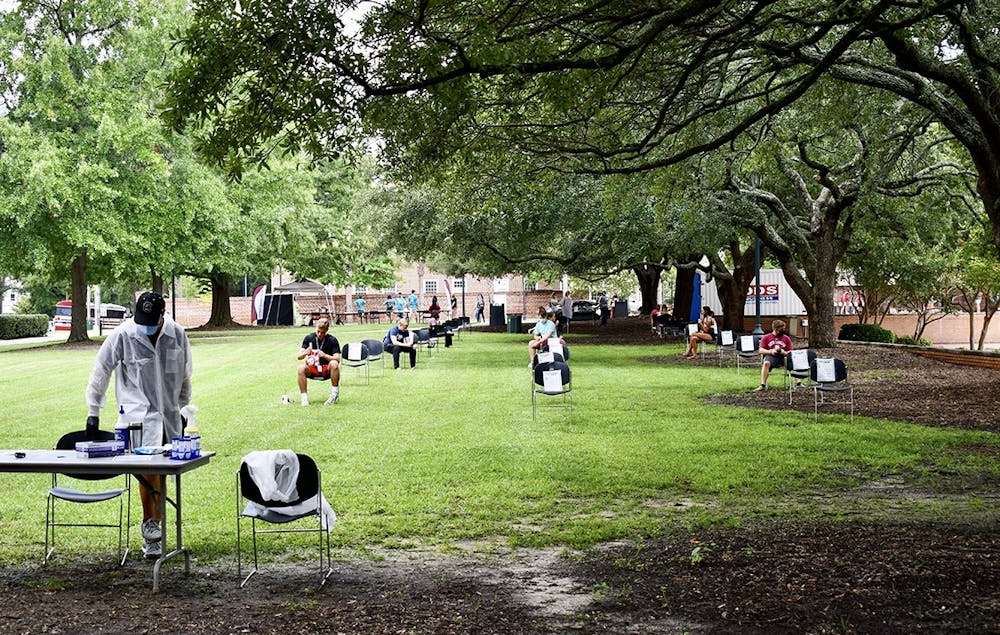Most students said they believe that the university’s required COVID-19 testing will help combat the pandemic, despite the fact many said they wouldn’t be getting tested without the requirement.
“I think it’s a good idea,” James Boone, second-year biology student, said. “With so many people in such a close proximity, it’s unavoidable that someone is going to become infected and come in contact with other people.”
When students returned to campus in January for the spring semester, the university required everyone who would spend time on campus to get tested before arriving. In addition, everyone on campus must test monthly.
“It’s a serious sickness that can kill people, and a lot of people here are younger, and they don’t understand,” Nate Milewski, first-year undeclared student, said. “You give this to someone who’s 65, you give this to someone who’s 35 and has underlying health issues, they can be dead early.”

The Daily Gamecock interviewed 40 students on what they thought of the new requirements, including their accessibility.
Students agreed the testing process on campus is efficient, which makes it less of a burden.
“I feel like USC does a really good job in the process in general,” Vanessa Brown, third-year finance student, said. “Never have I had to wait more than five minutes. So, it is a really quick process.”
Not only is the testing quick, but the results are, too.
“If you actually think that you might have it, you only get to freak out, then, for 24 hours,” Mathis Kreuzburg, first-year exercise science student, said. “It’s way better, in my opinion, than waiting the two to three days or whatever it is at CVS.”
Results for both saliva and nasal tests are typically shared within 24 hours after being collected, according to the university’s website.
Although students support the university’s decision to require testing, many said they probably wouldn’t be getting tested without the requirement. If they did, they said it would not be as often unless there was a reason, such as symptoms or contact with someone who tested positive.
To ensure students follow through, the university implemented “sanctions” that increase in severity the more students miss tests. Sanctions include a warning for a first offense, fines for following offenses and suspension for the most extreme cases.
These punishments have students divided.
“If it’s monthly tests, it’s only going to be like, four or five. So, if you miss all of them, maybe you should be suspended,” Luke Nuetzel, first-year sports management student, said.
Some students see the punishments as too harsh.
“Okay, the fines I can at least understand, but suspension just because you don’t go get tested? Really?” Ryan Schaufer, first-year marketing student, said. “That’s a bit overboard.”
Many students said they didn’t even know the details about the sanctions, which is what Schaufer said he expected.
“I don’t know how I found out about them,” Schaufer said. “I think it was my parents that actually told me what the things were. But, I’m willing to bet, you go around asking a dozen people here, they probably don’t know what the punishment is.”
While the vast majority of students interviewed said they agreed with the required tests, there were a few dissenters.
One was Patrick Higgins, second-year biological sciences student. He said he thought testing to be unnecessary because the death rate of college-age adults with COVID-19 was “absolutely nothing" but said he does "understand [required testing] from a governmental point of view."
As of Feb. 8, there have been 6,881 confirmed deaths due to COVID-19 and 414,573 confirmed positive cases in South Carolina. Deaths in which the victim was 20 to 24 years old make up 12 of the total death count, and deaths in which the victim is 15 to 19 years old make up less than 5.

